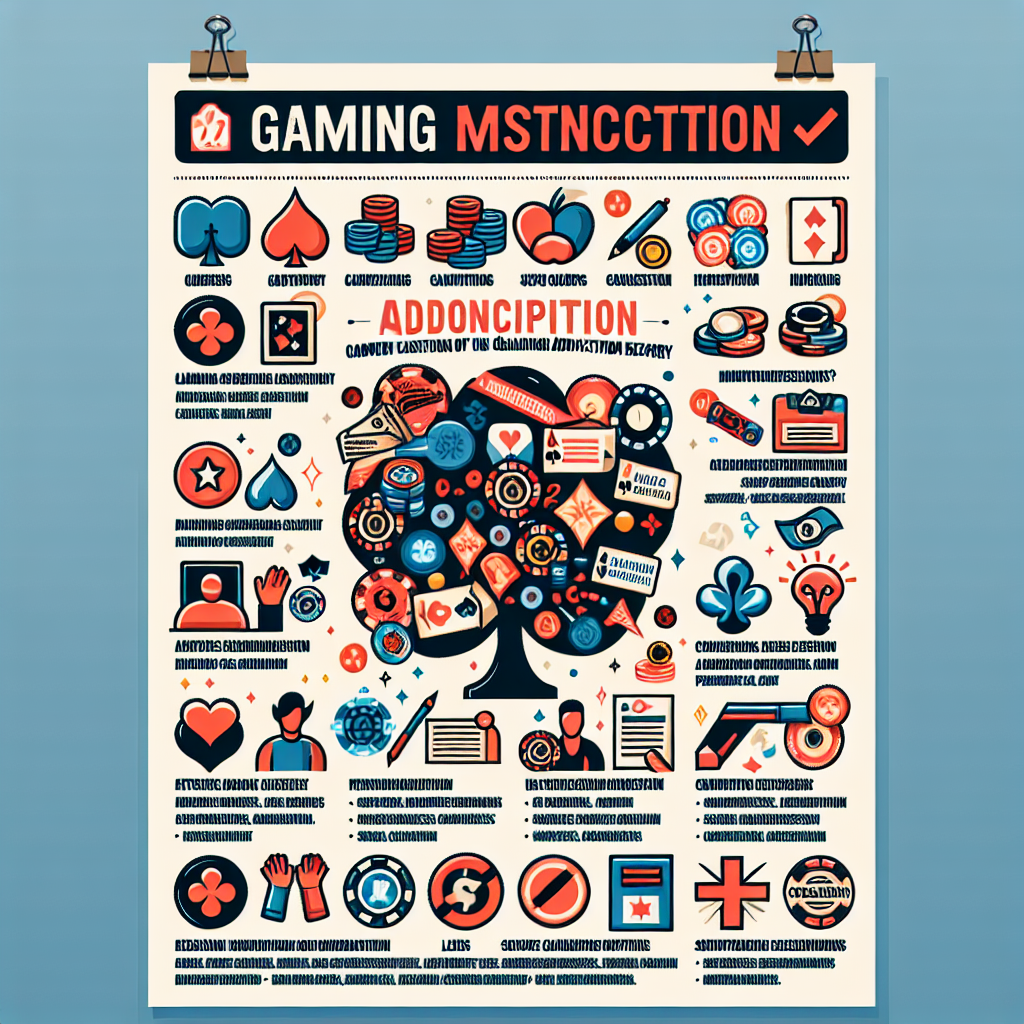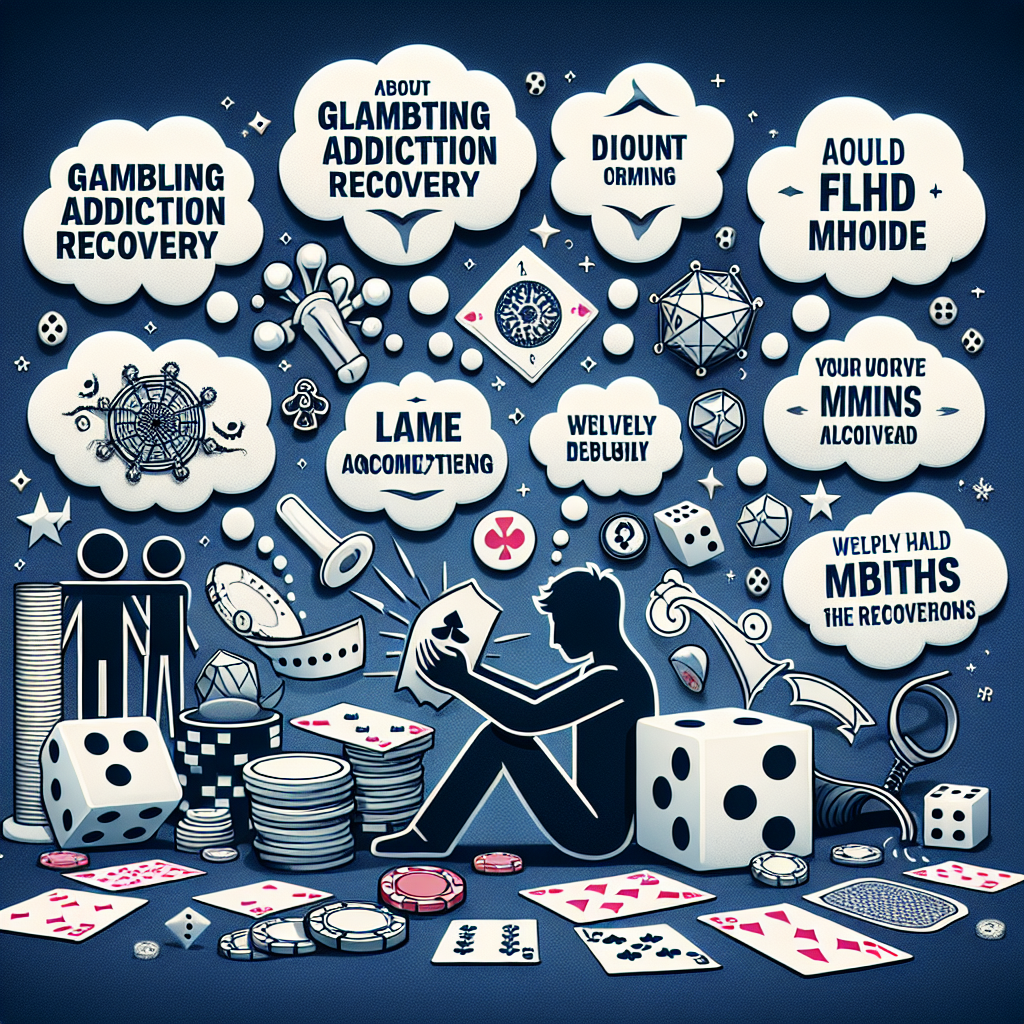-
Table of Contents

“Breaking the Myths: Understanding the Realities of Gambling Addiction Recovery”
Introduction
Gambling addiction recovery is often misunderstood, leading to several common misconceptions that can hinder effective treatment and support. One prevalent misconception is that sheer willpower alone is sufficient to overcome the addiction, ignoring the complex psychological and physiological factors involved. Another misunderstanding is that once a person stops gambling, their problems are immediately resolved, overlooking the long-term process of recovery and the potential for relapse. Additionally, many believe that gambling addiction is solely a financial issue, failing to recognize its deep emotional and mental health implications. These misconceptions can create barriers to seeking help and receiving appropriate care, making it crucial to address and correct them for more effective recovery outcomes.
Misconceptions About the Speed of Gambling Addiction Recovery
One of the most pervasive misconceptions about gambling addiction recovery is the belief that it is a quick and straightforward process. This misunderstanding can lead to unrealistic expectations and, consequently, disappointment and frustration for those affected. It is essential to recognize that recovery from gambling addiction is a complex and often lengthy journey, requiring patience, persistence, and a comprehensive support system.
Firstly, many people assume that once an individual decides to stop gambling, the recovery process will be swift. However, gambling addiction, like other forms of addiction, is deeply rooted in psychological and sometimes physiological factors. The decision to stop gambling is merely the first step in a multifaceted recovery process. It involves not only abstaining from gambling but also addressing the underlying issues that contributed to the addiction in the first place. This can include mental health conditions such as depression or anxiety, unresolved trauma, or even social and environmental triggers.
Moreover, another common misconception is that willpower alone is sufficient for recovery. While determination and personal resolve are undoubtedly important, they are often not enough to sustain long-term recovery. Gambling addiction alters brain chemistry, affecting the reward system and making it incredibly challenging to resist the urge to gamble. Professional help, such as therapy and counseling, can provide essential tools and strategies to manage these urges and develop healthier coping mechanisms. Cognitive-behavioral therapy (CBT), for instance, has been shown to be particularly effective in helping individuals understand and change their gambling behaviors.
In addition to professional help, a strong support network is crucial for successful recovery. Many people mistakenly believe that they can overcome gambling addiction on their own. However, isolation can exacerbate feelings of shame and guilt, making it harder to stay on the path to recovery. Support groups, such as Gamblers Anonymous, offer a sense of community and shared experience that can be incredibly empowering. These groups provide a safe space for individuals to share their struggles and successes, learn from others, and receive encouragement and accountability.
Furthermore, it is important to dispel the myth that relapse signifies failure. Recovery from gambling addiction is rarely a linear process; it often involves setbacks and relapses. These should not be viewed as failures but rather as opportunities for learning and growth. Understanding the triggers and circumstances that led to a relapse can provide valuable insights and help individuals develop more effective strategies for maintaining their recovery in the future. It is crucial to approach relapse with compassion and a commitment to continue the journey towards recovery.
Lastly, the misconception that recovery is solely about stopping gambling overlooks the broader aspects of healing and rebuilding one’s life. Recovery involves restoring relationships, improving financial stability, and enhancing overall well-being. It is a holistic process that requires time and effort to achieve lasting change. Celebrating small victories along the way and acknowledging progress, no matter how incremental, can foster a positive and resilient mindset.
In conclusion, understanding the realities of gambling addiction recovery is essential for setting realistic expectations and fostering a supportive environment for those on this challenging journey. By dispelling common misconceptions about the speed of recovery, we can better appreciate the complexities involved and offer the necessary support and encouragement to those striving to reclaim their lives from the grip of gambling addiction.
Misunderstandings Regarding the Role of Willpower in Gambling Addiction Recovery
One of the most pervasive misconceptions about gambling addiction recovery is the belief that sheer willpower alone is sufficient to overcome the addiction. This misunderstanding can be particularly damaging, as it places undue pressure on individuals struggling with gambling addiction and can lead to feelings of shame and failure when they are unable to quit through willpower alone. In reality, gambling addiction is a complex condition that often requires a multifaceted approach to recovery, involving professional help, support systems, and sometimes even medical intervention.
To begin with, it is essential to understand that gambling addiction, like other forms of addiction, is not merely a matter of weak will or poor self-control. It is a recognized mental health disorder that affects the brain’s reward system, leading to compulsive behavior despite negative consequences. This means that the brain of someone with a gambling addiction is wired differently, making it incredibly challenging to simply “will” oneself to stop. The biochemical changes in the brain can create intense cravings and a sense of euphoria when gambling, which can overpower rational decision-making and self-control.
Moreover, the societal stigma surrounding addiction often exacerbates the problem. Many people believe that those who cannot quit gambling lack moral fortitude or discipline. This stigma can prevent individuals from seeking the help they need, as they may feel embarrassed or ashamed to admit they have a problem. It is crucial to shift the narrative from one of blame to one of understanding and support. Recognizing that gambling addiction is a medical condition can help reduce the stigma and encourage more people to seek professional treatment.
Professional treatment for gambling addiction often involves a combination of therapies, including cognitive-behavioral therapy (CBT), counseling, and support groups. CBT, for instance, helps individuals identify and change the thought patterns and behaviors that contribute to their addiction. Counseling provides a safe space for individuals to explore the underlying issues that may be driving their gambling behavior, such as stress, trauma, or depression. Support groups, like Gamblers Anonymous, offer a community of individuals who understand the struggles of addiction and can provide encouragement and accountability.
In addition to therapy, some individuals may benefit from medication to help manage the symptoms of gambling addiction. Medications such as antidepressants or mood stabilizers can address co-occurring mental health conditions that may be contributing to the addiction. It is important to note that medication is not a cure-all but can be a valuable component of a comprehensive treatment plan.
Family and friends also play a crucial role in the recovery process. Their support and understanding can make a significant difference in an individual’s journey to overcome gambling addiction. It is essential for loved ones to educate themselves about the nature of addiction and to offer non-judgmental support. Encouraging the individual to seek professional help and participating in family therapy sessions can also be beneficial.
In conclusion, the misconception that willpower alone is enough to overcome gambling addiction is not only inaccurate but also harmful. Gambling addiction is a complex disorder that requires a comprehensive approach to treatment, including professional therapy, support systems, and sometimes medication. By shifting the narrative from one of blame to one of understanding and support, we can create an environment that encourages individuals to seek the help they need and ultimately achieve lasting recovery.
Q&A
1. **Misconception: Willpower alone is enough to overcome gambling addiction.**
**Answer: Recovery from gambling addiction often requires professional treatment, support groups, and sometimes medication, as it is a complex psychological issue that goes beyond mere willpower.**
2. **Misconception: Once a person stops gambling, they are cured.**
**Answer: Gambling addiction is a chronic condition, and even after stopping, individuals need ongoing support and strategies to prevent relapse and manage triggers.**
Conclusion
Common misconceptions about gambling addiction recovery include the belief that willpower alone is sufficient to overcome the addiction, that recovery is a quick and straightforward process, that relapse signifies failure, and that professional help is unnecessary. Additionally, some people mistakenly think that only those with severe financial losses need help, or that once someone stops gambling, they are fully recovered and no longer need ongoing support. These misconceptions can hinder effective treatment and long-term recovery.



